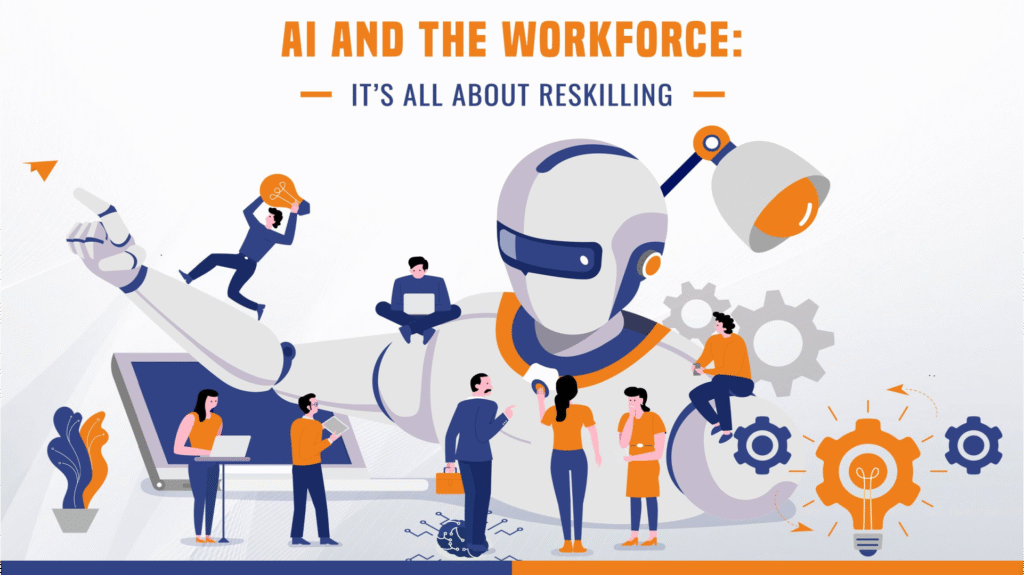The rise of Artificial Intelligence (AI) is reshaping the global economy at an unprecedented pace. According to the World Economic Forum, 44% of workers’ core skills are expected to change by 2027, requiring adaptation in both technical and human-centric capabilities. Jobs of the future will increasingly demand AI literacy, data analytics, digital collaboration, and ethical reasoning, while also valuing creativity, adaptability, and problem-solving.
Research from PwC indicates that AI-exposed roles evolve 66% faster than traditional jobs, with workers possessing AI expertise enjoying a 56% wage premium. This trend highlights the rewards of acquiring AI-aligned skills, but also the risks of inequality between digitally skilled workers and those left behind. Employers are moving toward lifelong learning models as the “half-life” of skills shrinks to six years. To address this, organizations are investing in micro-credentials, online training platforms, and apprenticeships that enable workers to update skills continuously.
At a policy level, many countries are prioritizing AI-focused education reforms. The European Union is advancing digital skill frameworks, while the United States is promoting skills-based hiring that values demonstrable AI knowledge over traditional degrees. Similarly, Singapore and South Korea have national AI roadmaps emphasizing upskilling and cross-disciplinary integration, blending technology with humanities and ethics. Scholars stress that human-machine collaboration will be the defining feature of the workforce where AI augments rather than replaces human roles.
While India stands to gain greatly from AI sector, hurdles still exist. While AI is expected to generate as much as $957 billion to the economy by 2035, the nation struggles with a limited talent pool, with only one qualified engineer available for ten AI jobs. To bridge this gap, initiatives like the IndiaAI Mission and university-industry collaborations are accelerating AI training and curriculum modernization. These actions underscore India’s vision of becoming a worldwide hub for AI skills while supporting continued growth.
Building an AI-ready workforce is a global priority. Success will depend not only on technical training but also on fostering adaptability, ethics, and lifelong learning skills that empower workers to thrive in the evolving digital economy.

